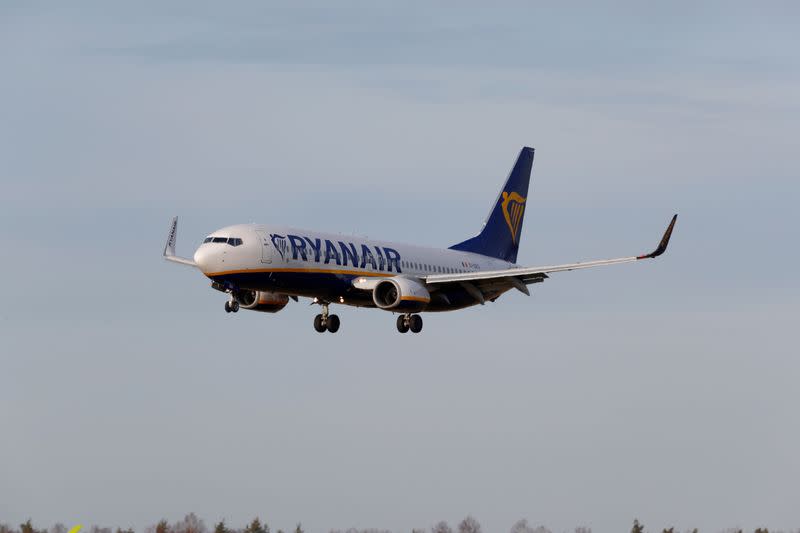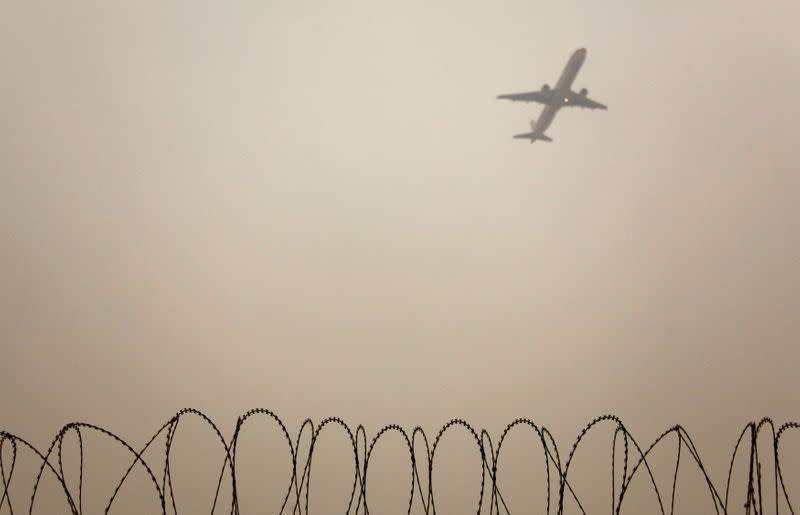Support builds to end free EU carbon permits for aviation
By Kate Abnett
BRUSSELS (Reuters) - A proposal to end free European Union carbon allowances for airlines and make them buy all the pollution permits they need gained momentum on Thursday, as at least seven member states backed the idea, EU officials said.
The change would increase costs for airlines when they already face multiple challenges, including a drop in demand because of the coronavirus.
But critics say the current system has removed the incentive for the sector to tackle its rising emissions.
Poland, itself under fire because of its dependency on carbon-intensive coal, proposed the idea at a meeting of environment ministers representing the 27 EU member states.
It said the carbon credit handouts - worth 800 million euros (690.88 million pounds) in 2019 - undermined the aim of the EU Emissions Trading System (ETS) to cut emissions in a cost-effective way.
Free allowances to airlines for flights inside the European Economic Area could not be justified as the sector "is not directly exposed to the risk of carbon leakage," Poland said. Carbon leakage is the idea industry will relocate beyond Europe to avoid European climate levies.
ETS-covered emissions from aviation increased every year from 2013 until 2018, according to EU data. Irish carrier Ryanair <RYA.A> became one of the carbon market's 10 largest emitters in 2018, joining nine coal power plants in the top ten.
So far aviation accounts for about 3% of the EU's emissions, but its share is expected to grow rapidly unless checked.
Countries, including the Netherlands and Spain, are exploring using environmental taxes to make airlines pay for their pollution.
Poland's proposal, which EU officials speaking on condition of anonymity said had the backing of at least seven member states, said ending free allowances for aviation would have a similar effect to environmental taxes.
It would, however, be easier to impose because the EU can only agree on tax changes if all states are unanimous.
An ETS review scheduled for 2021 would probably be the EU's first opportunity to adjust aviation's free allowances.
The sector will face increased scrutiny, as the European Union seeks to meet a goal to reduce its net emissions to zero by 2050.
But any plan to tighten the EU carbon market's grip on aviation could face opposition from ICAO, the UN aviation agency, which next year will launch a global scheme to require airlines to buy carbon offset credits.
ICAO, which is meeting in Montreal this week, wants the EU to remove aviation from its carbon market so the U.N. scheme, known as CORSIA, will be the only market-based measure tackling aviation emissions.
Brussels has said it will consider doing so, but only if CORSIA upholds strict environmental standards.
Environmental groups have criticised CORSIA, saying it would allow aviation emissions to keep rising after 2020 if airlines bought enough carbon offset credits to cover the increase.
(Reporting by Kate Abnett; editing by Barbara Lewis)

 Yahoo Finance
Yahoo Finance 

